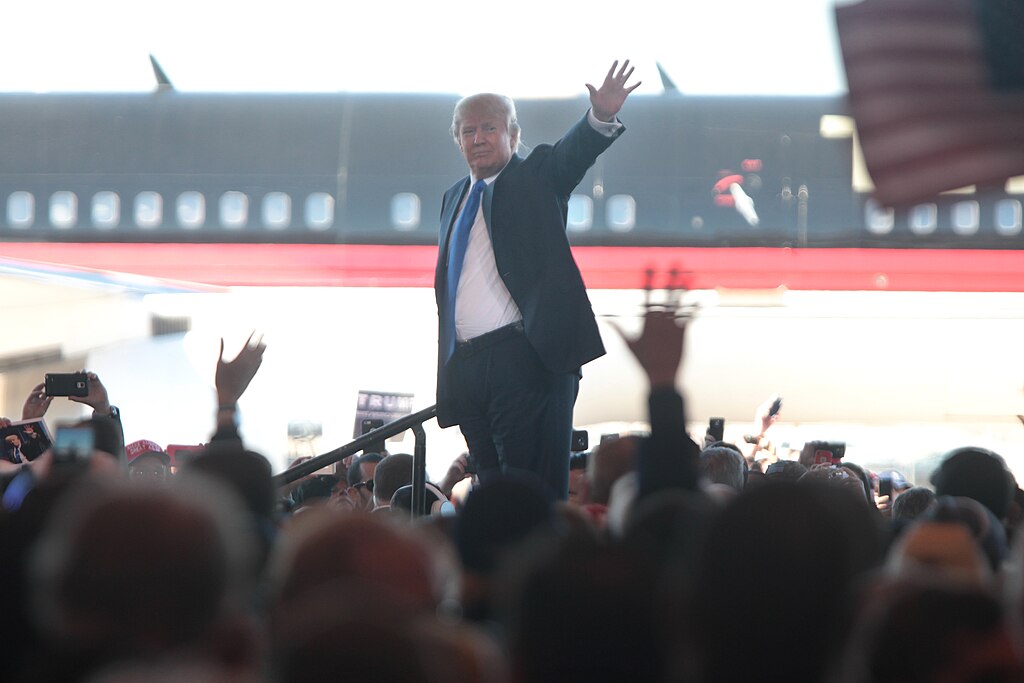As Donald Trump prepares to begin his second term in 2025, public transportation reform has emerged as a significant focus of his domestic agenda. With increasing demands on aging infrastructure and mounting public frustration over inefficiency and overcrowding, Trump's administration has indicated plans for major changes in the nation’s public transit systems. However, the president-elect's vision has sparked both optimism and concern among stakeholders.
According to sources close to the administration, Trump intends to prioritize public-private partnerships (PPPs) to fund large-scale transportation projects. By leveraging private capital, his administration hopes to expedite upgrades to infrastructure such as subway systems, buses, and commuter rail networks while reducing the burden on federal resources.
While the potential economic benefits are evident, critics argue that relying heavily on privatization could undermine affordability and equity in public transit systems. Additionally, concerns have been raised about the possible sidelining of environmental priorities in favor of corporate profit.
Infrastructure Upgrades and Privatization Debate
Trump’s approach focuses on addressing the nation’s growing transit infrastructure challenges. The American Society of Civil Engineers (ASCE) estimates that the U.S. requires over $200 billion in investment to bring public transit infrastructure up to acceptable standards. Trump’s administration has proposed a multi-pronged strategy that includes federal grants, state partnerships, and private-sector involvement.
One of the key initiatives under consideration involves incentivizing private companies to adopt and operate parts of public transit systems. Advocates argue that such partnerships could inject much-needed capital into transit projects while fostering innovation and efficiency. Cities like Denver and Los Angeles, which have experimented with PPPs in transportation, are seen as models for Trump’s plan.
However, critics warn that privatization could lead to increased fares, reduced services, and profit-driven decision-making. Former Transportation Secretary Anthony Foxx stated, “While private investment is important, we must ensure that public transit remains accessible and equitable for all Americans.”
Environmental groups also express concerns about Trump’s potential rollback of green initiatives in public transit. During his first term, Trump famously rolled back environmental regulations, and advocates fear that history could repeat itself, further delaying progress toward sustainable transit solutions.
Public Reaction and Online Debate
News of Trump’s proposed transit overhaul has sparked heated discussions online, with users divided over the merits of privatization and its long-term impact.
- @UrbanPlanner101: “America’s transit systems desperately need modernization, but Trump’s privatization approach could make public transit unaffordable for millions.”
- @MAGA_Rider: “Finally, a president with the guts to overhaul these outdated systems! Trump’s plan will make transit great again.”
- @ClimateDefender: “This administration will prioritize profit over clean energy and sustainability—our planet deserves better.”
- @CommuterKing: “Public-private partnerships could solve the funding crisis, but we need safeguards for fare hikes and service cuts.”
- @EcoActivistJane: “The future of transit must be green, not corporate. We can’t afford to sacrifice environmental goals.”
- @ProgressiveRider: “Trump’s track record doesn’t inspire confidence. Will his transit reforms benefit people or big business?”



 Iran Supreme Leader Ayatollah Ali Khamenei Killed in Israeli, U.S. Strikes: Reuters
Iran Supreme Leader Ayatollah Ali Khamenei Killed in Israeli, U.S. Strikes: Reuters  Israel Launches Fresh Strikes on Iran After Death of Supreme Leader Ayatollah Khamenei
Israel Launches Fresh Strikes on Iran After Death of Supreme Leader Ayatollah Khamenei  Trump to Address Nation as U.S. Launches Strikes in Iran, Axios Reports
Trump to Address Nation as U.S. Launches Strikes in Iran, Axios Reports  Dominican Republic Unveils Massive Rare Earth Deposits to Boost High-Tech and Energy Sectors
Dominican Republic Unveils Massive Rare Earth Deposits to Boost High-Tech and Energy Sectors  NYC Mayor Zohran Mamdani Meets President Trump to Tackle Housing Crisis and ICE Detentions
NYC Mayor Zohran Mamdani Meets President Trump to Tackle Housing Crisis and ICE Detentions  U.S.-Iran Nuclear Talks Show Progress but No Breakthrough Amid Rising Military Tensions
U.S.-Iran Nuclear Talks Show Progress but No Breakthrough Amid Rising Military Tensions  Pentagon Leaders Monitor U.S. Iran Operation from Mar-a-Lago
Pentagon Leaders Monitor U.S. Iran Operation from Mar-a-Lago  Russia Signals Openness to U.S. Security Guarantees for Ukraine at Geneva Peace Talks
Russia Signals Openness to U.S. Security Guarantees for Ukraine at Geneva Peace Talks  HHS Adds New Members to Vaccine Advisory Panel Amid Legal and Market Uncertainty
HHS Adds New Members to Vaccine Advisory Panel Amid Legal and Market Uncertainty  Trump Floats “Friendly Takeover” of Cuba as Rubio Reportedly Engages in Talks
Trump Floats “Friendly Takeover” of Cuba as Rubio Reportedly Engages in Talks  Trump Warns Iran as Gulf Conflict Disrupts Oil Markets and Global Trade
Trump Warns Iran as Gulf Conflict Disrupts Oil Markets and Global Trade  Pentagon to Halt Ivy League Programs for U.S. Military Officers Starting 2026
Pentagon to Halt Ivy League Programs for U.S. Military Officers Starting 2026  Federal Judge Blocks Virginia Social Media Age Verification Law Over First Amendment Concerns
Federal Judge Blocks Virginia Social Media Age Verification Law Over First Amendment Concerns  Venezuela Oil Exports to Reach $2 Billion Under U.S.-Led Supply Agreement
Venezuela Oil Exports to Reach $2 Billion Under U.S.-Led Supply Agreement  Israel Declares State of Emergency as Iran Launches Missile Attacks
Israel Declares State of Emergency as Iran Launches Missile Attacks  Argentina Senate Approves Bill to Lower Age of Criminal Responsibility to 14
Argentina Senate Approves Bill to Lower Age of Criminal Responsibility to 14  Macron Urges Emergency UN Security Council Meeting as US-Israel Strikes on Iran Escalate Middle East Tensions
Macron Urges Emergency UN Security Council Meeting as US-Israel Strikes on Iran Escalate Middle East Tensions 
































